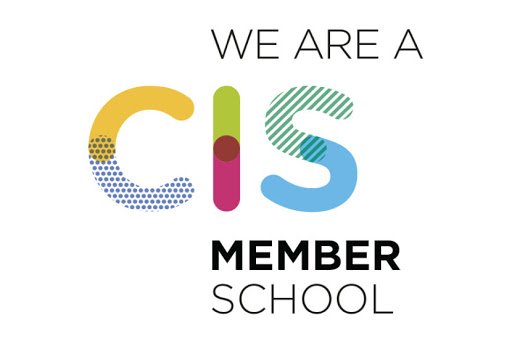TERM 2 REVIEW 2019-20
A conversation with the Director of ICT about Shrewsbury’s Online
The recent concerns surrounding COVID-19, and the requirement for some students to stay at home following travel to “at risk” countries, has brought Shrewsbury’s online learning plans into action. As Director of ICT, Mr Simon Aves explains, online learning is already a well-established part of teaching and learning at Shrewsbury, and although absence from school can be challenging for students and staff alike, recent days have demonstrated just how well prepared Shrewsbury’s teachers are to provide a high quality learning experience in the digital classroom.
What kinds of things has Shrewsbury been doing in an online capacity?
The school has a long-held commitment to ensuring that all our staff and students have access to, and extensive training and support in, the use of educational technologies (EdTech). The appropriate use of Edtech can really enhance the learning experience, and is very much part of the fabric of the school. Training in the effective use of key hardware and software applications is a central element of the continuous professional development programme for all of our staff, and recent events have provided an opportunity for many staff to undergo further training to ensure that they as prepared as possible to deliver their lessons to students at home.
Our virtual learning environments are well established. Firefly and Google Classroom are already used on a day-to-day basis across the school, allowing teachers to share lesson resources, assessment materials and home-learning activities.
This experience has enabled us to provide a seamless transition from classroom to home-based study for those students who have been in quarantine over recent days.
How do you make sure online lessons maintain the highest degree of quality?
In general, I think we are reflective school and teachers are always thinking about ways to improve their practice. In the digital domain we encourage staff to provide feedback and give their ideas on what we can do to further enhance the online learning experience for our students. Many of our staff have undertaken several professional online learning courses themselves, and are acutely aware of the demands that this mode of learning can place on students. These experiences helps us to support students and their parents at home with clear explanations, giving thoughtful feedback and assessment.
We have a wide range of tools at our disposal, which help our teachers to deliver online lessons that are fresh and engaging; it would be against the school’s ethos to simply roll out rote lessons with endless worksheets and PowerPoint presentations. In the last two weeks, I have personally witnessed classes where students were collaborating from up to four different locations at once. I have also observed some excellent classroom-based lessons where students have been able to join remotely by logging-in from home; they were, in effect able to participate in the lesson as if they were physically present.
I am a believer that situations of adversity can often provide opportunities too. By necessitating the provision of online learning for quarantined students, the COVID-19 situation has undoubtedly provided an opportunity to enhance the digital skillset of staff and students alike, and provided added impetus and great ideas in terms of how we can use EdTech effectively and creatively. In a very short space of time have been able to launch some exciting new tools for our students such as EdPuzzle, Kaizena and GoSoapBox and experiment with this emerging EdTech to use with our students – with much success.
Quarantine can be lonely; how do we ensure students’ learning is not done in isolation?
Social interaction with friends and classmates is critical. Shrewsbury’s collaborative tools and platforms such as Google Drive and FlipGrid encourage our students to communicate, interact, and work together. Students are in regular contact with teachers through our communication platforms who provide regular feedback, guidance and commentary.
Joining Google Hangouts allows students to participate in lessons remotely, and if for some reason, they are not able to connect ‘live’, our staff have been recording experiences for review at a later date.
In addition to maintaining the academic provision for absent students, we also try to keep a close eye on their physical and emotional wellbeing. Teachers regularly “check-in” with students by email, and students can also privately contact teachers through Firefly and school mail if they ever have any concerns, knowing that they will receive a timely response.
How responsive have teachers been to adapting their lessons?
Very positive. It is reassuring, but not surprising given the outlook and professionalism of our teaching staff. They have effectively managed the increased workload of planning and delivering lessons that can be enjoyed both by students in the classroom and those learning from home, and also attended a series of associated training and development sessions. As a ‘tech guy’, I’ve been really encouraged to hear colleagues sharing so many great and creative ideas around the use of EdTech, and the feedback that they have been providing about specific platforms has provided welcome perspective on how things actually work in the physical and virtual classroom environments. This is all good stuff that will continue to benefit teaching and learning at Shrewsbury going forward.
The excellent online lessons that have been delivered across the school in recent weeks are a testament to the significant investment that Shrewsbury has made in EdTech resources and training over the past few years.
What feedback have you had from parents?
Of course, there is natural anxiety from parents regarding COVID-19 and the potential impact that quarantine measures may have on learning provision. We continue to invite parents to give us their feedback and ask any questions they have. One of the key concerns is around the level of interaction and discourse that can be achieved through solely digital means, and by its very nature, this will always be more limited than when a student is present in class. However, the collaborative software and communications platforms that we are now using means that there is more opportunity for rich interaction than ever before, and I have equally been pleased to hear so many positive comments back from parents about how effective and engaging our online lessons have been. For many it’s been a real eye-opener about how their children are now using technology to aid their learning at Shrewsbury every day.
With regards to coronavirus, the key thing is that parents now know that no matter how the current situation evolves, we will continue to deliver the syllabus and curriculum for our students. What’s more, there is a genuine desire to provide highest-quality learning experience possible in every lesson, whether that is in the classroom, or online. The expectations are clear for both staff and students, and in a prolonged absence situation – as would be the case of whole school closure - the regular timetable will continue to be developed as per usual, with regular assessment and feedback. I know that parents have found this reassuring over the last few weeks, so it’s good to have these systems in place.
How can parents help?
Learning remotely at home does pose some evident challenges, and some students will understandably find it harder to adapt to this mode of working than others. The support of parents is crucial in helping to create an effective working environment and routine at home. To help guide students and parents, take a look at our 11 tips for learning at home here.










